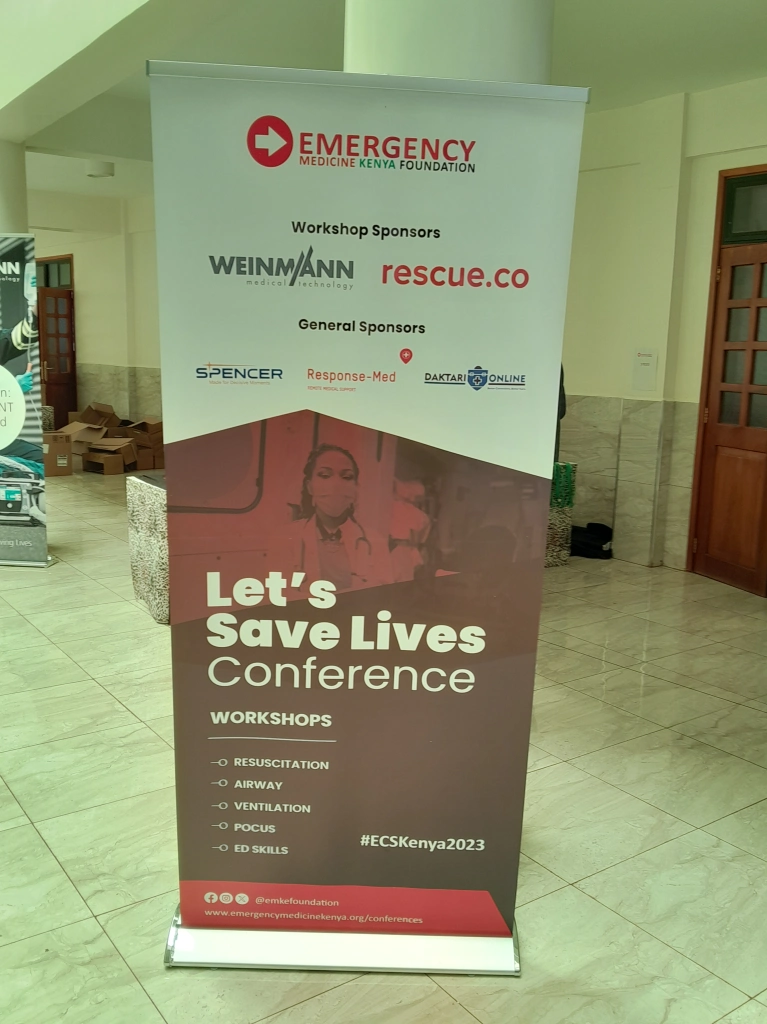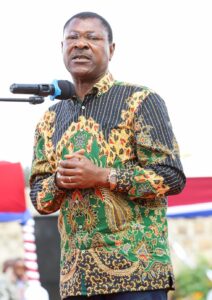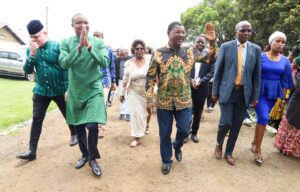Emergency Medicine Kenya Foundation (EMKF) on Thursday 2nd and Friday 3rd November 2023 held a two day symposium at Kenya School of Government (KSG) in Nairobi to impact on healthcare system in the country.
The 4th edition, Emergency care symposium has garnered tremendous success as demonstrated by previous symposia and their impact on the emergency healthcare system in Kenya.
To build on this momentum, this year’s symposium aims to equip frontline healthcare providers with the necessary emergency medical care knowledge and skills through our innovative and groundbreaking Emergency medical care skills market place.
The target audience for this symposium is healthcare providers working in emergency departments and ambulance services.

“Today, we have brought in emergency healthcare providers from across the country to come and sharpen and improve their skills and knowledge. Emergency healthcare fund has been approved by the government, and we are happy on that move so that all kenyans can access quality emergency healthcare.” Said Doctor Benjamin Wachira Executive Director Emergency Medicine Kenya Foundation.
Health Advisor at the Office of The President Doctor Mwai Daniel offered that, ” We are trying to help Kenyans by coming up with Afya Bora Mashinani Nyumbani part of Universal Healthcare model given the burden of healthcare. The issue of healthcare financing is critical since some families are left poor by huge hospital Bills, some are related to emergency cases such as accidents. Due to many lives lost, we saw the need for emergency healthcare fund and the desire to have the whole country benefit from the care. Emergency fundbis expected to provide evacuation of the person to nearby healthcare institution get the stabilization services 24 hours as the fund shoulders the cost. The Bill has already been signed into law by the President.”
Kephas Achiro representing Turkana County observes that they have benefited alot from the programme training, Availability of the ambulance hence highlighting the need for emergency care in Turkana county.
Doctor Matano Kibwana from Kilifi County also noted that, the Emergency Health system in Kilifi needed a new unit and having a role in Emergency healthcare system and prehospital care where there is a toll number for all people to call.
and further called upon different stakeholders to come on board as partners to help in matters of emergency services.

EMKF is a non-governmental organization (NGO) committed to strengthening emergency healthcare systems in Kenya to save lives. It provides with the latest in emergency medical care practice to healthcare workers and the public through the Casualty App, training and the provision of freely available educational resources.










